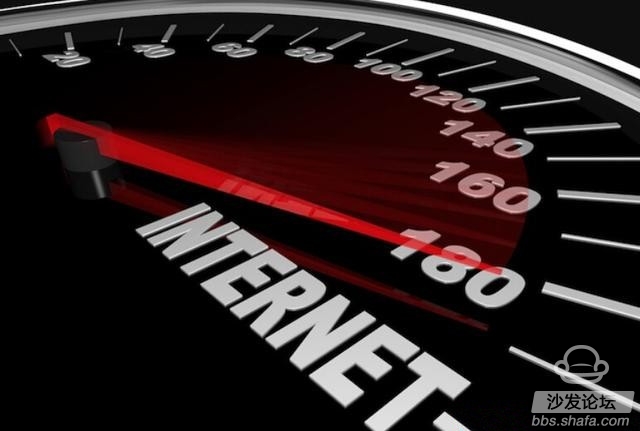
Since this year, Li Keqiang, Premier of the State Council, which the media called “Super Userâ€, has urged the users to “speed up†and cut down on network fees.
Because of the “prompt†of the Prime Minister, in mid-May, the three major operators China Mobile, China Unicom, and China Telecom announced plans for “speed up and fee reductionâ€, with the maximum reduction in tariffs exceeding 35%. However, over the past month or so, netizens are still “dissatisfied†with the operator’s fee reduction plan.
Experts said that the speed of net lifting and net fee reduction can never be solved by the operator's plan for a single paper, but it involves multi-faceted issues such as the construction of the Internet infrastructure, the implementation of relevant policies and regulations, and the establishment of a cost-digestion mechanism.
Analysts said that behind this "benefit" of netizens, there is deep consideration in reshaping the mature telecommunications market and accelerating the development of the Internet, thereby promoting entrepreneurial innovation and boosting economic transformation and upgrading.
The Prime Minister urged on three occasions, netizens look forward to "in one step"
The State Council issued an opinion that the speed of the Internet will be 40%, and the traffic volume will be unclear. Operators will provide maximum tariff adjustments.
Since the two national conferences this year, Premier Li Keqiang has started to express his position on the issue of speed. In the government’s report this year, the word “Internet†was mentioned eight times and it was the highest in the calendar year.
Afterwards, Li Keqiang continuously urged him to “speed up the network and reduce network fees†three times. The State Council's guidance on accelerating the construction of high-speed broadband networks and advancing network speed-up and fee-reduction. Immediately, specific targets, such as "40% increase in network speed, zero traffic flow," were announced.
For the Prime Minister's "grant bag," netizens have "liked" and said that the prime minister "understands me."
As of December last year, China had nearly 700 million Internet users. According to a survey of more than 100,000 netizens by Tencent DaYan.com and Sina.com, nearly 70% of netizens spend 50 to 200 yuan per month on the Internet. Among them, 30% of netizens spend between 100 and 200 yuan per month.
According to data provided by relevant responsible persons of the Ministry of Industry and Information Technology, compared with 2011, the mobile traffic tariff actually decreased by 60% in 2014, and the broadband tariff level also decreased by 30%. However, compared with most foreign countries, the domestic high net fee With netizens, there is still a big gap.
After the Prime Minister oversaw several times, the Ministry of Industry and Information Technology responded that it will promote enterprises to increase network investment and reduce mobile phone flow rates, and immediately arrange related companies to research and implement.
On May 16th, the Ministry of Industry and Information Technology announced the annual target of 30% reduction in network fees over the same period of last year. On the same day, the three major operators China Telecom, China Mobile, and China Unicom came up with their own plans to increase their speeds and fees, and said that the maximum tariff reduction was more than 35%.
According to the list of plans, the average plans for mobile traffic and cable broadband tariffs have dropped by about 30%, and the speed of the network has increased. The urban areas in major cities have been upgraded to 100 trillion, which basically matches the targets for speed reduction and fee reduction announced by the Ministry of Industry and Information Technology.
Some operators said that this is the biggest tariff adjustment ever.
At present, the three major operators have announced plans to increase speed and reduce fees for more than a month. The Beijing News reporter logged on to China Unicom's online business office to see that the 20M, 50M and 100M tariffs in the Beijing area have all been revised according to the plan and dropped to RMB 1480/year, RMB 1780/year and RMB 1980/year respectively.
However, Internet users are still not satisfied. A portal survey showed that 78.7% of the 65,000 users surveyed thought that "the three operators are not sincere." The program's "night traffic" and other content have become the largest slot users.
Netizens suggest that operators will only lower the unit price by means of limited-time traffic and promotional packages, and some "chicken-style" packages will even allow some consumer communications costs to rise instead. This fee-reduction plan is tantamount to "diversion" and is the operator's "word game."
Some measures have not yet been completed. According to media reports, including China Telecom's reduction of international roaming charges, China Mobile's foreign investment package price reduction, etc.; In addition, compared to fixed-line broadband price adjustment, 4G mobile data flow tariff adjustments are mostly still in the "on paper" stage.
In addition, the issues being considered include the same price as China Unicom's broadband, 4M and 10M. According to statistics from the Ministry of Industry and Information Technology, broadband users with an access rate of 8 Mbps and below accounted for more than 50% of the total. This is also interpreted as: A considerable number of users have spent 10M broadband prices, but they are using 4M broadband.
There is a gap with expectation: where is it difficult to increase the speed and reduce fees?
"Fragment-breaking" reduces the risk for enterprises to lose money, and broadband network facilities have not yet reached the "last mile."
Netizens hope that “one step is in placeâ€, and in some experts’ opinion, the speeding up and fee reduction is really implemented, far from the operator’s plan for a “dust settledâ€.
Hardware speed is the most direct issue for speed. Compared with copper broadband, optical broadband access speed is more smooth. As for the infrastructure transformation of the broadband network, operators have not yet reached the "last mile."
The former deputy dean of the Chinese Academy of Engineering and the chairman of the China Internet Association, Qi Hejun, told the Beijing News reporter that operators must complete the transformation of residential fiber-to-the-home systems and face many construction difficulties. For example, when some broadband operators install optical fiber into the residential area, they encounter many out-of-spectacular “admissions†for property prices.
This related law has already been mentioned. In 2013, the Ministry of Industry and Information Technology and the Ministry of Housing and Urban-Rural Development had proposed the right to guarantee the freedom of users to choose operators among the relevant national standards for fiber-to-the-home in residential areas. However, problems still existed in the implementation process.
He said that the construction of infrastructure for broadband speeding also involves the layout of base stations. In macro terms, the expansion of bandwidth requires the re-laying and expansion of domestic trunk optical cables, which is also a relatively large amount of work.
After the optical fiber enters home, it is also not dedicated to the operator's private network. Shi Wei, a researcher at the National Development and Reform Commission’s Institutional Reform Institute, said that in many communities, broadband is equivalent to cutting the bandwidth “cake†into an excessive share, which consumes the original bandwidth.
Consumers' own behavior also has a negative effect.
Shi Wei, for example, said that after entering a home, Broadband abroad usually connects only one computer. In most homes in China, it is common for a broadband to receive three or four computers and four or five mobile phones at the same time, resulting in internal physical loss.
For the "cost reduction", it is not a matter of simple profit-making.
For example, the "identity" of telecommunications operators. Shi Wei said that the operators are state-owned enterprises and also listed companies. Operators always face the SASAC performance evaluation.
Under the solidified evaluation system, operators lack the mechanism of “trial and errorâ€.
“In foreign countries, operators can adjust their own tariffs. But domestic operators are not afraid. Adjusting tariffs will inevitably lead to a decline in profits, which will be investigated in the evaluation.†Shi Wei introduced.
In fact, at present, the profit rate of domestic telecom operators has been somewhat lower than that of foreign countries. According to Shi Wei, mobile profit margins after taxes are slightly higher, and Unicom and Telecom are still less than 5%. This figure is only equivalent to the average profit margin of traditional manufacturing industries.
He also said that some developed countries, such as the United States, will adopt government procurement services for operators. In China, there is a problem of “who is going to resolve†the cost of fee reduction.
Shi Wei believes that it is difficult to increase the speed and reduce fees, and it is necessary to gradually reduce the level of tariffs on the basis of continuous technological advancement, continuous expansion of the scale of users, establishment of cost-digestion mechanisms, and so on. "Fragging" will reduce the risk of loss.
Experts interpreted that the speed reduction and fee reduction aims to release the "great strokes"
In addition to benefiting people’s livelihood, it also aims to reshape the mature telecommunication market and lay a platform for popular entrepreneurship and innovation.
For a long time, "telecommunications monopoly" was also considered to be the cause of operators' lack of fee reduction.
He Hexin believes that the three operators face the same accounting system and price competition will be controlled within a certain range. However, the intensity of competition during this period is not lower than in foreign countries.
“Competitiveness is not excessive price cuts. For example, do we need two water companies, two power companies? Introducing 100 telecom operators, will the price issue be solved? Market opening is one thing, but the problem is not that simple. ."
Shi Wei believes that monopoly is a manifestation of the impact on the price after the market share is absolutely controlled. The price monopolies of the three operators exist objectively, in which “mix and match†the market and administrative monopoly. Among them, the solution to market monopoly is to strengthen supervision; administrative monopolies include national interests, national strategies, universal services, infrastructure construction, and responding to international challenges. Although administrative intervention is involved, it does not mean that it is backward.
Experts generally believe that the high-level intention of the Internet to increase the speed and reduce fees, in addition to benefiting people's livelihood, also contains many aspects of deep consideration.
The guidelines issued by the State Council on accelerating the construction of high-speed broadband networks to promote network speed-up and fee-reduction not only mentioned that they should “promote telecom companies to reduce their network fees,†but also mentioned “improving the operational efficiency of telecom companies, orderly opening up the telecom market, and strengthening telecommunications. Market supervision and upgrading of public service."
Experts believe that increasing the speed and reducing the cost of this "stone" will provoke a series of "defamation." “Raising the speed of the network and reducing the cost of the network†will be the beginning of reshaping a more mature telecommunications market. When market competition becomes more fierce and when the market develops more completely, it will naturally form more realistic and competitive telecommunications charges.
According to media interpretation, the State Council's speeding up and reducing expenditures is to promote the “construction†of a more efficient telecommunication market with a competitive pattern.
In addition, the “big move†for speed increase and fee reduction includes the layout of platforms for mass entrepreneurship and innovation.
“The state encourages speeding up and reducing fees, and its considerations are long-term.†Wu Hexin analyzed that China’s economy is in a critical period of transformation and upgrading, and the country has launched the “Internet+†strategy. The Internet-based entrepreneurial innovation, no matter from the aspects of investment, technology, venues, etc., will undoubtedly reduce the cost threshold for entrepreneurial innovation, so that the general public, and even Internet users in remote areas, can participate.
"Accordingly, speed-up and fee-down is not simply a behavior of netizens who are not allowed to profit. It is related to the development of the Internet, and is therefore of great importance to the creation of an environment of popular entrepreneurship and innovation, including the deep consideration of economic restructuring and upgrading."
Time goes back to the starting point of the topic of "speed up and fee down". On April 14, Li Keqiang presided over the first quarter economic situation seminar. At that time, the economic data in the first quarter was just announced, and the downward pressure on the economy continued to increase. Creating a new engine for the economy and new business forms is a arduous task.
Expert analysis, from the standpoint of many high-level positions, the mass innovation and "Internet Plus" of the masses will be an indispensable tool. However, "speeding up the network and lowering the cost of the Internet" is a must.
According to the relevant policy plan, from the end of June to the end of the year, the three major operators will also launch a series of broadband and mobile network concessions, and continue to promote broadband speed.
The interviewed experts expressed their optimism: “Speeding up the Internet and reducing network fees†are not temporary measures. Netizens do not need to worry too much.
Review: The Prime Minister has promoted "speeding up and reducing fees"
1, the two national conferences:
Since the two sessions of the National People's Congress this year, Premier Li Keqiang has started to express his position on the issue of speed.
“I have visited some countries. Some developing countries have faster Internet speeds than Beijing!†said Li Keqiang when he participated in the joint discussion of the economic and agricultural sectors of the Third Session of the Twelfth National People's Political Consultative Conference.
In the government’s report this year, the word “Internet†was mentioned eight times and it was the highest in the calendar year.
2. Economic Forum
A month later, Li Keqiang's statement on the Internet once again triggered massive "likes" by netizens. At the forum on the economic situation in the first quarter of April 14th, Li Keqiang said, “Many people now, where to first ask 'There is no WiFi' because our traffic charges are too high!â€
In response to the reflection of high traffic expenses by attendees and NetEase CEO Ding Lei at the time, Li Keqiang said to relevant department officials that it was possible to study how to reduce the flow fee and “small profits but quick turnoverâ€.
3. State Council Executive Meeting
Only every other month, when Li Keqiang presided over the executive meeting of the State Council on May 13th, he would “step on the gas pedal†for the third time to increase speed and reduce expenses.
At the meeting, he borrowed “more than 100 million trips to travel abroad, but the roaming speed of going abroad is declining†and “guides traveling abroad to bring WIFI†and other phenomena, indicating that “cost reduction†is not the government’s decision, but "Market choices. “A hundred million tourists are going abroad. This is how big a market! People are very clear that your network fees, traffic charges are too high, and he will not!â€
At this meeting, the State Council's guidelines on accelerating the construction of high-speed broadband networks to promote network speed-up and fee reduction were reviewed. Immediately, specific targets, such as "40% increase in network speed, zero traffic flow," were announced.
Since then, even during his visit to Chile, Li Keqiang has continued to focus on "speed." He said that when surfing the Internet in a hotel room at night, "I feel that the speed of the network is very fast!"

Card Usb Flash Drives make the ideal promotional gift. The handy card shape means that this model can easily fit in your pocket or wallet, or even sent out in the mail with ease.

The added benefit of these promotional Card USB Flash Drives is their large print areas. Full color photo quality digital print is available on most of our Card Usb Flash Drive models.

Please note, all our Card USB Flash Drive housings are made from recycled materials and some of Card USB Flash Drive are made of Wood material.
Card USB Flash Drive is An ideal way to store all your pictures, documents, music and videos. Card USB Flash Drive Can act as a wonderful gift for your friends and families and A great way to distinguish your masses of USB flash drives from each other as our cute USB come in a variety of variations for every day use.
- Compatibility: Desktop, Laptop, Macintosh, Tablet, Speakers all with USB1.0 and 2.0.
- Operating System : Windows7/Vista/XP/2000/ME/NT/98,Linux (Sometimes incompatible with Mac OS 9.X/Linux2.4)
- Fine choice for advertisement allow to print LOGOs and advertisement.
- Very Low Power Consumption, durable solid-state storage.
- Small and exquisite design brings much convenience.

Various products of Card USB Flash Drive, including Credit Card USB Flash Drive, Bank Card USB Flash Drive, Custom Card USB Flash Drive, Plastic Card USB Flash Drive, Wood Card USB Flash Drive and so on. We also providing product images and basic parameters with each Card USB Flash Drive and RMB Credit Card USB Flash Drive Free Logo; We are a professional Chinese manufacturer of Card USB Flash Drive, and look forward to your cooperation!

Card Usb Flash Drive
Card Usb Flash Drive,Oem Card Usb Flash Drive,Colorful Card Usb Flash Drive,Mini Card Usb Flash Drive
Reteck Electronic Co., Ltd. , https://www.reteck.com